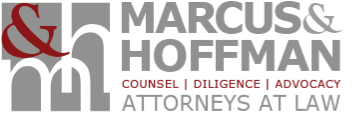With autumn fast approaching, many Community Associations are beginning preparations for their annual meeting and many face the reoccurring problem of a lack of candidates willing to run for the Board of Directors. One concern which may keep unit owners from running, and which is often shared by sitting Board Members, is personal exposure to liability for actions taken by the Board.
As a general rule, Board Members are well protected against personal liability which may arise from actions they take while discharging their fiduciary duties as Board Members. The sources of this protection often include the Association's governing documents, Pennsylvania law, including the Uniform Planned Community Act and the Uniform Condominium Act, and federal law, including the Volunteer Protection Act of 1997.
As permitted by Section 5302 of the Pennsylvania Uniform Planned Community Act and Section 3302 of the Pennsylvania Uniform Condominium Act, the governing documents of many Associations require that the Association defend and indemnify its Board Members. The Governing Documents may also require that the Association secure Officers' and Directors' insurance. Furthermore, pursuant to Sections 5303 and 3303 of these Acts, Board Members have no personal liability so long as they discharge their duties in good faith, exercising care to make informed decisions and act in the best interests of the Association. Finally, some additional protection may be provided by the federal Volunteer Protection Act which offers protection, with some exceptions, to volunteers acting within the scope of their volunteer responsibilities.
Of course, the laws and governing documents cannot offer protection for actions that are criminal, such as embezzlement, or intentionally wrongful acts. One of the best protections against personal liability is to consult the opinion of an expert when required. We will discuss the Board's power to consult experts in more detail in our next Newsletter. Ultimately, so long as Board Members make informed decisions and act in the best interests of their Association, the risk of personal legal liability is minimal and should not deter volunteers from running for election to the Board of Directors.
As a general rule, Board Members are well protected against personal liability which may arise from actions they take while discharging their fiduciary duties as Board Members. The sources of this protection often include the Association's governing documents, Pennsylvania law, including the Uniform Planned Community Act and the Uniform Condominium Act, and federal law, including the Volunteer Protection Act of 1997.
As permitted by Section 5302 of the Pennsylvania Uniform Planned Community Act and Section 3302 of the Pennsylvania Uniform Condominium Act, the governing documents of many Associations require that the Association defend and indemnify its Board Members. The Governing Documents may also require that the Association secure Officers' and Directors' insurance. Furthermore, pursuant to Sections 5303 and 3303 of these Acts, Board Members have no personal liability so long as they discharge their duties in good faith, exercising care to make informed decisions and act in the best interests of the Association. Finally, some additional protection may be provided by the federal Volunteer Protection Act which offers protection, with some exceptions, to volunteers acting within the scope of their volunteer responsibilities.
Of course, the laws and governing documents cannot offer protection for actions that are criminal, such as embezzlement, or intentionally wrongful acts. One of the best protections against personal liability is to consult the opinion of an expert when required. We will discuss the Board's power to consult experts in more detail in our next Newsletter. Ultimately, so long as Board Members make informed decisions and act in the best interests of their Association, the risk of personal legal liability is minimal and should not deter volunteers from running for election to the Board of Directors.

